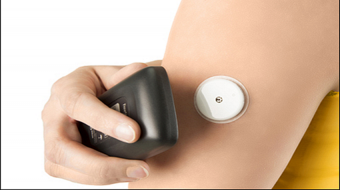Diabetes quiz
Knowledge is Power.
True/False - Quiz: Do You Understand Diabetes?
Information - Diabetes
 There are two main types of diabetes: type 1 and type 2 diabetes. If you have type 1 diabetes, your pancreas doesn't produce any insulin. If you have type 2 diabetes, your pancreas doesn’t produce enough insulin, or your body does not properly use the insulin it makes.
There are two main types of diabetes: type 1 and type 2 diabetes. If you have type 1 diabetes, your pancreas doesn't produce any insulin. If you have type 2 diabetes, your pancreas doesn’t produce enough insulin, or your body does not properly use the insulin it makes.
Blood Glucose Monitoring
Insulin is a hormone in the body that moves the glucose from your blood into the cells. Diabetes causes glucose (sugar) to build up in your blood. Glucose is a type of sugar we get from foods, and as it travels through the bloodstream to the cells, it’s called blood sugar or blood glucose. Glucose is found mainly in foods rich in carbohydrates, like fruit, bread, pasta and yogurt, and the body uses it for energy.
 Blood glucose monitoring is an important part of any diabetes management plan. If you have diabetes, it’s important to check your blood sugar levels as prescribed by your doctor. This will determine if you have low or high blood sugar and show you how your medication and lifestyle are affecting your blood sugar levels. If you’re diagnosed with diabetes, you’ll work closely with your healthcare team to manage the disease and prevent complications.
Blood glucose monitoring is an important part of any diabetes management plan. If you have diabetes, it’s important to check your blood sugar levels as prescribed by your doctor. This will determine if you have low or high blood sugar and show you how your medication and lifestyle are affecting your blood sugar levels. If you’re diagnosed with diabetes, you’ll work closely with your healthcare team to manage the disease and prevent complications.
Type 1 & Type 2 Diabetes Treatment
 Your primary care provider will probably refer you to an endocrinologist, a doctor who is specially trained in conditions affected the glands and hormones. During visits with your primary care provider or endocrinologist, he or she will perform an A1C test to measure the glucose (blood sugar) in your blood by checking hemoglobin. Your physician may also take blood or urine samples to assess kidney, liver and thyroid function.
Your primary care provider will probably refer you to an endocrinologist, a doctor who is specially trained in conditions affected the glands and hormones. During visits with your primary care provider or endocrinologist, he or she will perform an A1C test to measure the glucose (blood sugar) in your blood by checking hemoglobin. Your physician may also take blood or urine samples to assess kidney, liver and thyroid function.
Type 1 diabetes treatment includes:
• Insulin
• Blood sugar monitoring
• Diet and exercise changes
• Diabetes medication such as metformin, sulfonylureas or meglitinides (in some cases)
Type 2 diabetes treatment includes:
• Blood sugar monitoring
• Diet and exercise changes
• Diabetes medication such as metformin, sulfonylureas or meglitinides (in some cases)
• Insulin (in some cases)
It’s essential to see your healthcare team regularly for diabetes monitoring, especially as diabetes complications can lead to diabetic retinopathy, kidney disease (nephropathy) and diabetic neuropathy.
Talk to your family physician if you'd like more information on diabetes.
Visit HealthChoicesFirst.com for more videos and resources on family health.
Print this Action Plan and check off items that you want to discuss with your healthcare provider
-
Blood glucose monitoring is an important part of any diabetes management plan. If you have diabetes, it’s important to check your blood sugar levels as prescribed by your doctor.
-
During visits with your primary care provider or endocrinologist, he or she will perform an A1C test to measure the glucose (blood sugar) in your blood by checking hemoglobin. Your physician may also take blood or urine samples to assess kidney, liver and thyroid function.
-
Type 1 diabetes treatment includes insulin, blood sugar monitoring, diet and exercise changes and diabetes medication.
-
Type 2 diabetes treatment includes blood sugar monitoring, diet and exercise changes, diabetes medication and insulin.
-
It’s essential to see your healthcare team regularly for diabetes monitoring, especially as diabetes complications can lead to diabetic retinopathy, kidney disease (nephropathy) and diabetic neuropathy.



